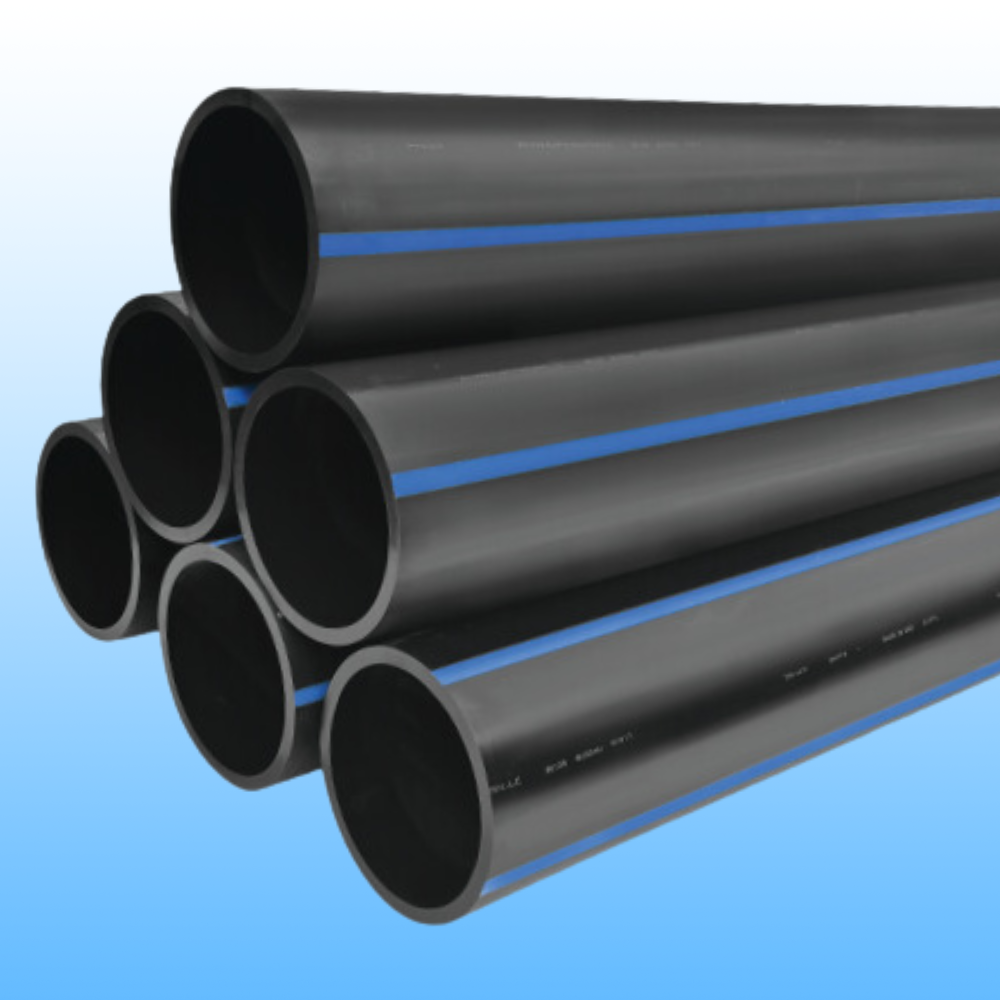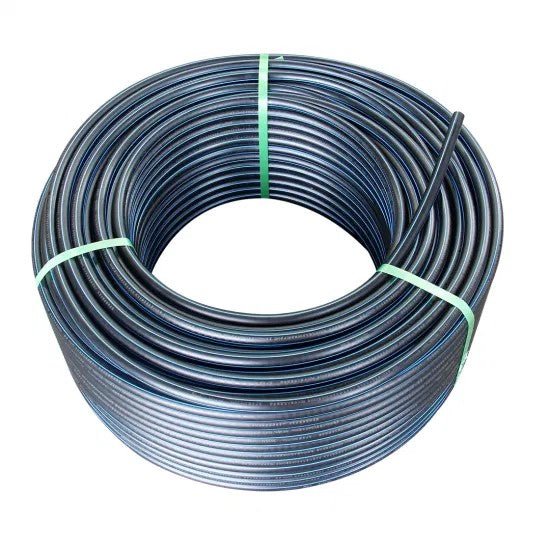How American Plastics HDPE Pipe Manufacturing Maintains Sustainability
Wiki Article
Comprehending the Trick Advantages of HDPE Pipeline for Water and Wastewater Monitoring
The use of HDPE pipe in water and wastewater administration provides countless advantages that warrant consideration. Its exceptional longevity and lengthy life-span make it a favored option for several projects. In addition, the material's resistance to rust and chemical damages improves its reliability in numerous environments. Nonetheless, the benefits prolong beyond just long life and resistance. Discovering its cost-effectiveness and environmental effect discloses a lot more engaging reasons for its widespread fostering in contemporary infrastructureExceptional Toughness and Durability

HDPE pipe attracts attention for its exceptional sturdiness and durability, making it a favored selection in water monitoring systems. Created from high-density polyethylene, these pipelines can stand up to significant pressure and tension, guaranteeing reputable performance gradually. Their robust nature enables them to sustain severe ecological conditions, consisting of temperature fluctuations and dirt movements, which can cause other products to fail.
The lifespan of HDPE pipelines typically exceeds half a century, providing a cost-efficient option for towns and sectors alike. Furthermore, the product's lightweight properties simplify installment, reducing labor costs and durations. This sturdiness reduces the need for regular repairs or substitutes, further boosting its economic appeal.
In water administration applications, the reliability of HDPE pipes suggests fewer disruptions and boosted service continuity, making them integral to sustainable framework development. The mix of durability and long life strengthens HDPE's role as a foundation in efficient water monitoring solutions.

Resistance to Deterioration and Chemical Damage
While several products catch rust and chemical damages in time, HDPE pipes exhibit amazing resistance, making them optimal for different water management applications. This resilience comes from the molecular framework of high-density polyethylene, which is naturally non-reactive and does not wear away like metals or deteriorate from direct exposure to rough chemicals. Consequently, HDPE is very effective in environments with aggressive materials, such as wastewater systems that might have acids, bases, and organic solvents.
Furthermore, HDPE pipelines can stand up to environmental variables such as soil level of acidity and saline conditions, further enhancing their suitability for diverse applications (Midland TX HDPE Pipe Fittings in Stock). Their capacity to keep architectural honesty over time minimizes the risk of leakages and failures, which is essential in ensuring the safety and dependability of water distribution and wastewater monitoring systems. The resistance to deterioration and chemical damage substantially adds to the overall effectiveness and longevity of HDPE piping options.
Cost-Effectiveness and Financial Advantages
When thinking about the monetary ramifications of water administration systems, the cost-effectiveness of HDPE pipelines becomes evident. These pipes provide reduced installation and maintenance prices compared to conventional products like steel or concrete. Their light-weight nature streamlines transport and installation, leading to reduced labor expenditures. Additionally, HDPE pipelines display a lengthy life-span, typically surpassing 50 years, which translates to fewer substitutes and long-lasting cost savings.The resistance of HDPE to corrosion and chemical damage lessens the need for expensive repair services and replacements. The pipelines additionally support effective water flow, minimizing power prices connected with pumping systems. By mitigating leaks and water loss, HDPE pipes add to significant economic benefits for communities and sectors alike. On the whole, the initial financial investment in HDPE piping can generate substantial monetary returns over the life-span of the water administration system, making it a prudent option for sustainable framework development.
Environmental Sustainability and Decreased Influence

Versatility and Adaptability in Installment
As a result of their distinct properties, HDPE pipes supply exceptional flexibility and versatility in installation, making them suitable for a variety of applications. Their light-weight nature allows for simpler handling and transport, reducing labor expenses and setup time. HDPE pipelines can be curved and formed to fit numerous terrains and task demands, which is particularly useful in testing atmospheres.In addition, their resistance to rust and chemical damage enables setup in varied setups without the need for specialized safety coverings. The capacity to fuse joints develops a continual, leak-free system, enhancing the overall honesty and integrity of the installation. HDPE's flexibility additionally suits ground movement, minimizing the danger of damage in areas vulnerable to moving dirt. In general, these features make HDPE pipes not only versatile but also a favored choice for water and wastewater administration systems.
Regularly Asked Concerns
Exactly How Does HDPE Pipe Contrast to PVC in Water Administration Applications?
HDPE pipeline supplies remarkable versatility, resistance to corrosion, and resilience contrasted to PVC. Its lighter weight facilitates less complicated setup, while its long life-span decreases replacement costs, making HDPE a favored choice in water monitoring applications.What Is the Lifespan of HDPE Piping Under Normal Problems?
Under regular conditions, HDPE pipelines can have a life expectancy varying from 50 to 100 years. Their toughness and resistance to deterioration add to their long-term efficiency in different applications, making them a dependable selection for framework.Are HDPE Pipes Recyclable After Their Solution Life?
Yes, HDPE pipes are recyclable after their life span. Pipe Supplier American Plastics Midland. They can be processed and repurposed right into new products, considerably minimizing environmental impact and advertising sustainability within the market, making them a more info green selection for piping optionsWhat Is the Installment Process for HDPE Water Lines?
The setup procedure for HDPE pipelines entails website prep work, trenching, pipe fusion or mechanical signing up with, backfilling, and pressure testing. Correct techniques guarantee a long lasting and reliable system for carrying water and wastewater efficiently.Can HDPE Pipes Be Used for Both Drinkable and Non-Potable Water Solutions?
Yes, HDPE pipes can be made use of for both potable and non-potable water supply. Their convenience, resilience, and resistance to corrosion make them ideal for different applications, guaranteeing secure and efficient transport of water in various contexts.Report this wiki page